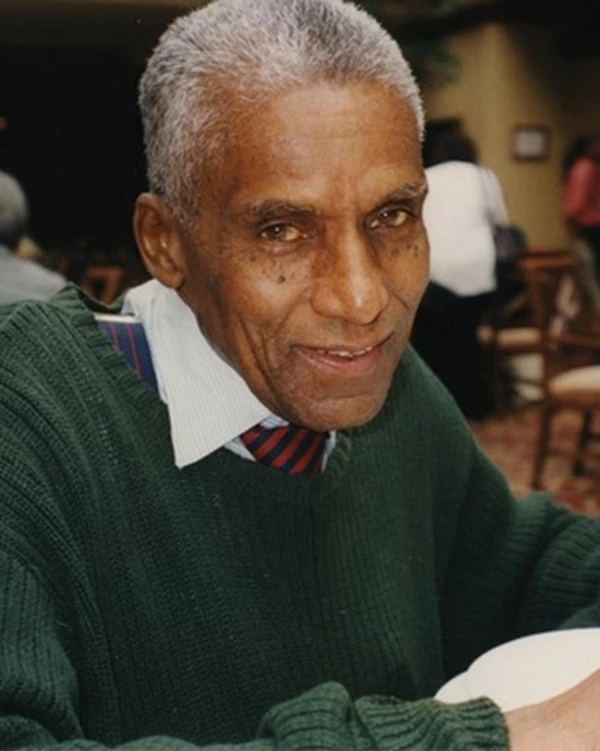Last updated: May 8, 2025
Person
James Forman

Courtesy of UMass Amherst
James “Jim’ Forman was born on October 4,1928 in Chicago, Illinois, but spent much of his childhood in Marshall County, Mississippi, at his grandmother’s farmhouse, which lacked running water and other basic amenities. He attributed much of his political development to the experience of growing up in the midst of rural poverty and under the oppressive conditions of Jim Crow segregation.
At the age of six, he returned to Chicago, where he attended a Roman Catholic grammar school. Forman graduated with honors from Englewood High School in 1947 and later served in the Air Force before enrolling at the University of Southern California in 1952. However, after being beaten and arrested by police during his second semester, he transferred to Roosevelt University in Chicago. There, he became a leader in student politics and headed the university’s delegation to a National Student Association conference in 1956. Forman earned his bachelor's degree in 1957 and moved east to attend graduate school at Boston University.
In 1958, he covered the Little Rock school desegregation crisis for the Chicago Defender. By 1960, he had returned to Fayette County, Tennessee, with the Congress of Racial Equality (CORE) to assist in a voter registration drive. Forman was also actively involved in grassroots organizing alongside NAACP leader Robert Williams in Monroe, North Carolina. That summer, he was jailed along with other Freedom Riders for protesting segregated facilities in Monroe. After his sentence was suspended, he accepted a position as executive secretary of the Student Nonviolent Coordinating Committee (SNCC).
Following the defeat of the Mississippi Freedom Democratic Party in 1964, Forman and other SNCC workers traveled to Guinea at the invitation of the country’s government. After returning to the U.S., he became increasingly outspoken in his criticisms of the federal government and what he saw as the limitations of liberalism. Within SNCC, he encouraged staff members to explore Marxism and Black Nationalism.
Though still working with SNCC, Forman became the Black Panther Party’s minister of foreign affairs in early 1968, seeking to build connections between African Americans and revolutionary movements in the Third World. Later that year, he also joined forces with the League of Revolutionary Black Workers. In April 1969, he and other League members took control of the National Black Economic Development Conference in Detroit, where he was scheduled to speak.
A prolific writer, Forman authored several books on the civil rights movement and Black revolutionary thought, including Sammy Younge, Jr.: The First Black College Student to Die in the Black Liberation Movement (1968) and his autobiography, The Making of Black Revolutionaries (1972). He later pursued higher education, earning a master’s degree in African and Afro-American History from Cornell University in 1980 and a PhD from the Union of Experimental Colleges and Universities in 1982.
In 1981, he published his dissertation, An Examination of the Question of Self-Determination and Its Application for the African American People, in which he advocated for an autonomous Black nation in the Black Belt region of the United States.
Forman passed away from colon cancer in 2005 at the age of 76.
